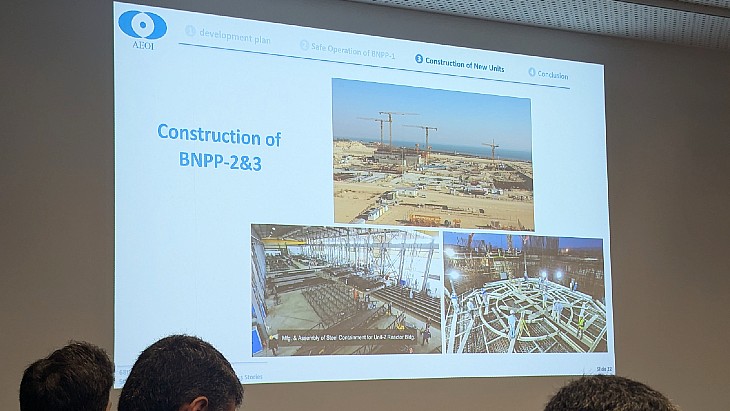UK plasma exhaust research receives funding
 The UK's MAST Upgrade tokamak is to receive £21 million ($27 million) in funding to upgrade its plasma exhaust systems. The upgrades will allow fusion researchers to improve their understanding of plasma exhaust physics.
The UK's MAST Upgrade tokamak is to receive £21 million ($27 million) in funding to upgrade its plasma exhaust systems. The upgrades will allow fusion researchers to improve their understanding of plasma exhaust physics.The UK's MAST Upgrade tokamak is to receive £21 million ($27 million) in funding to upgrade its plasma exhaust systems. The upgrades will allow fusion researchers to improve their understanding of plasma exhaust physics.
.jpg) |
| MAST Upgrade (Image: UKAEA) |
The controlled exhaust of power and particles from a hot fusion plasma, through the 'divertor' area of the reactor, is arguably the biggest challenge facing a future fusion power plant using the tokamak design, according to the Culham Centre for Fusion Energy (CCFE).
The Mage Amp Spherical Tokamak (MAST) facility at CCFE in Oxfordshire is undergoing a major upgrade. MAST Upgrade is expected to begin operating later this year.
MAST Upgrade's flexible divertor design is already focussed on studying a range of configurations which could solve this problem, CCFE said. These include the new 'Super X' divertor, designed to cool particles down by steering them on a longer exhaust path out of the plasma.
European fusion research consortium EUROfusion has now approved the first phase of its contribution to a £21 million program of enhancements to MAST Upgrade. The funding - which will be phased from now to 2022 - will come jointly from EUROfusion and the UK's Engineering and Physical Sciences Research Council.
This funding will give MAST Upgrade an "unrivalled capability" over the coming years, according to CCFE. It will be used to increase the tokamak's plasma heating power from 5 MWt to 10 MWt. It will also be used to install a cryoplant for the divertor, as well as improving the plasma fuelling systems. The funding will also be used for upgrading plasma control hardware and software, and for adding extra equipment for measuring plasma exhaust data.
Andrew Kirk, head of MAST Upgrade operations, said: "MAST Upgrade provides a uniquely flexible test bed for plasma exhaust physics in all divertor configurations. This extra funding will enhance our capabilities even further, enabling MAST Upgrade to assess alternative divertors for use in the first fusion power plants."
Researched and written
by World Nuclear News
_92619.jpg)

_84504.jpg)






_50521.jpg)


